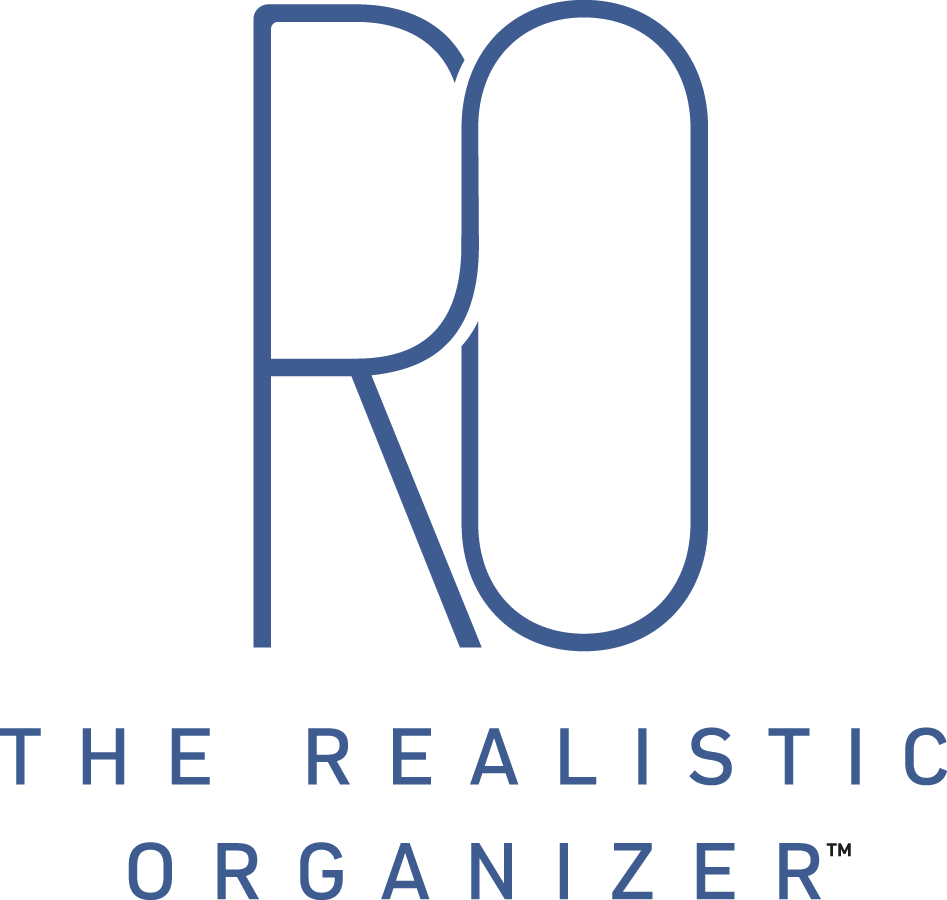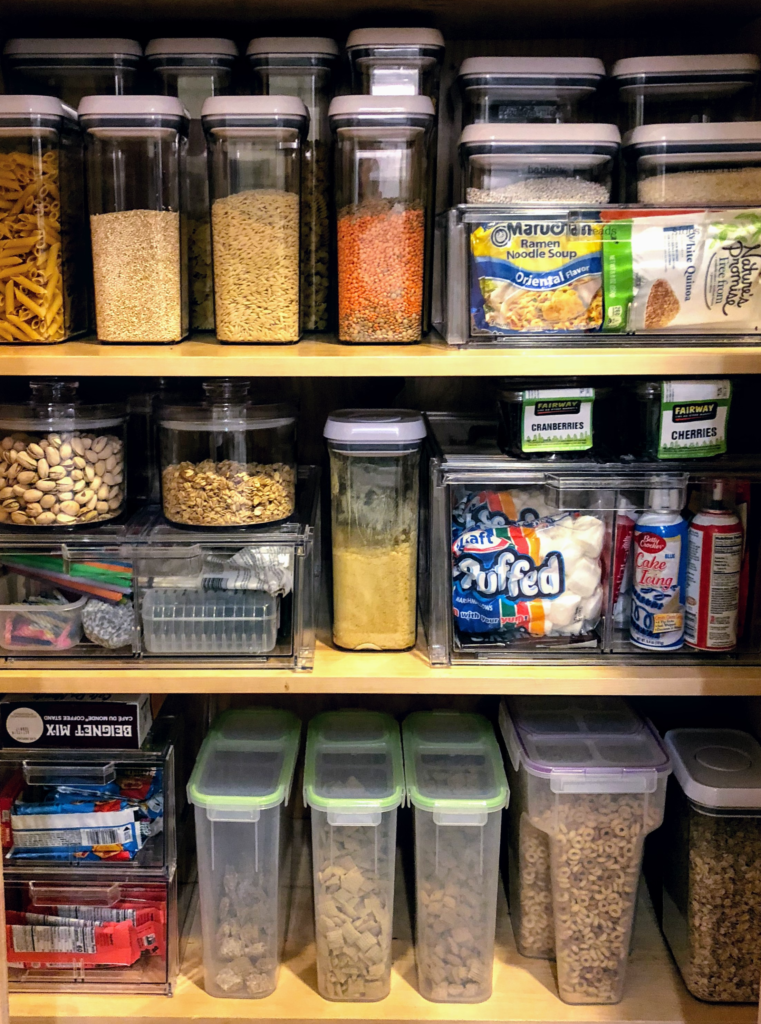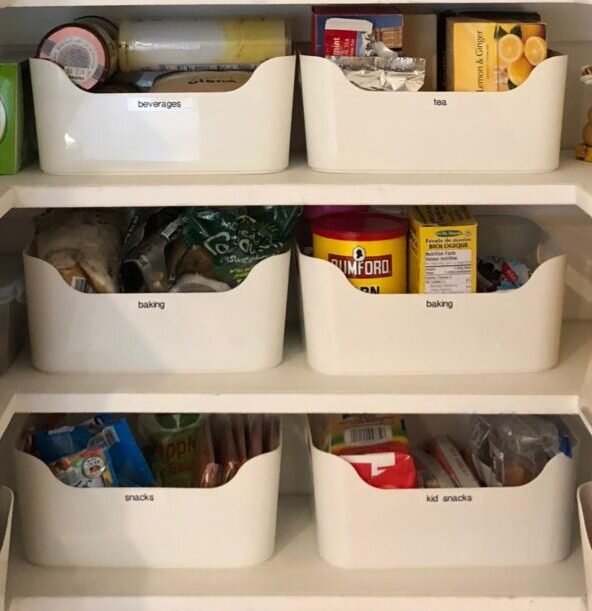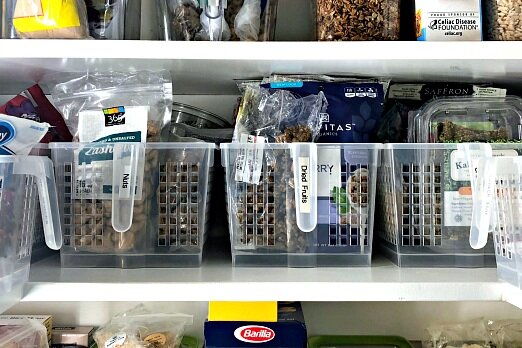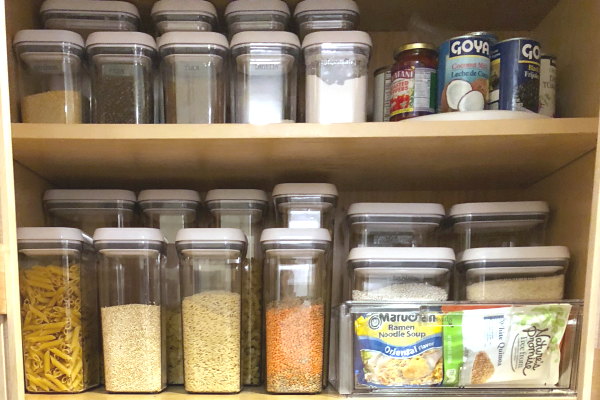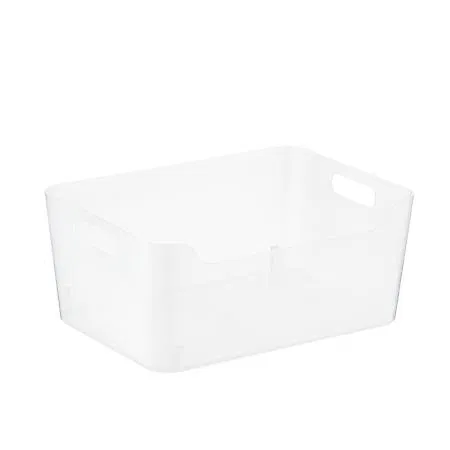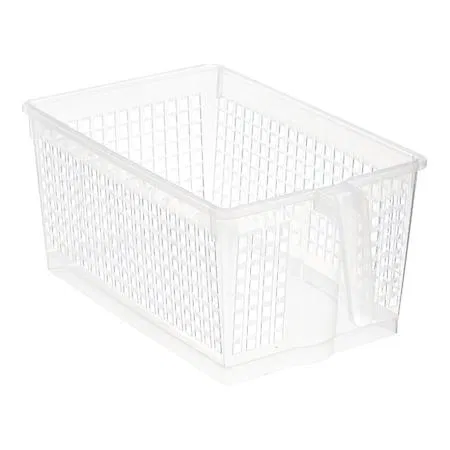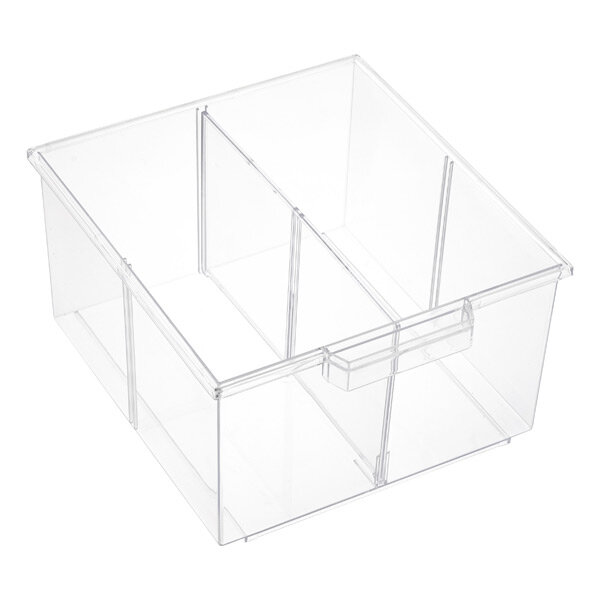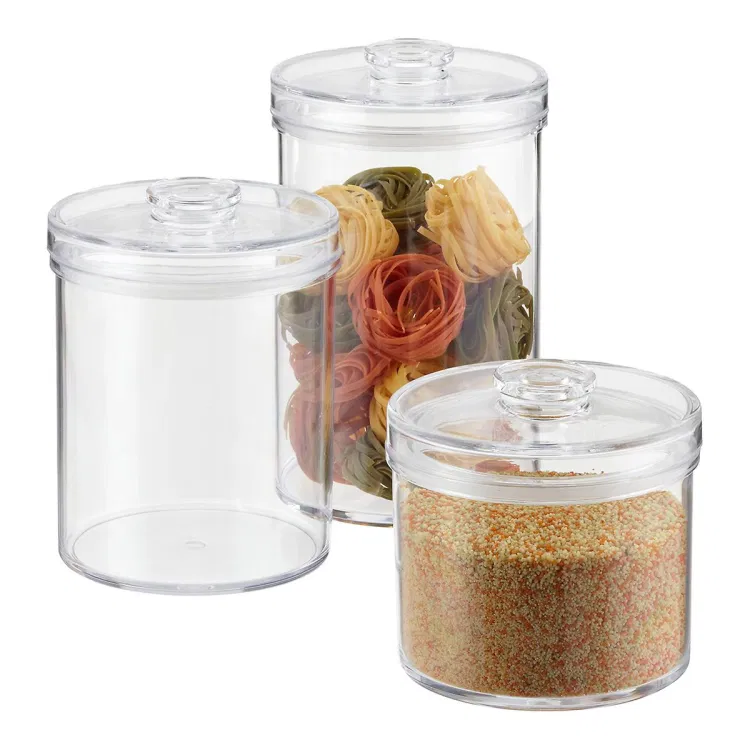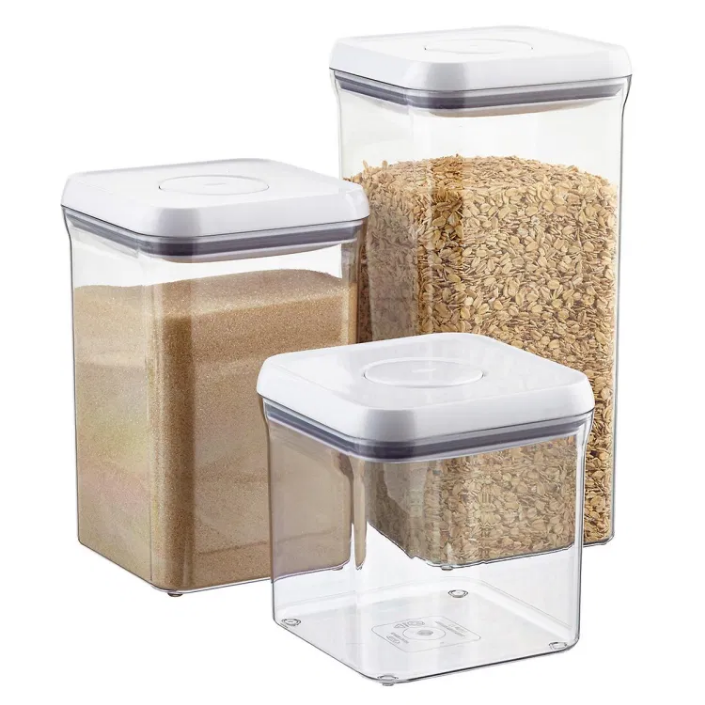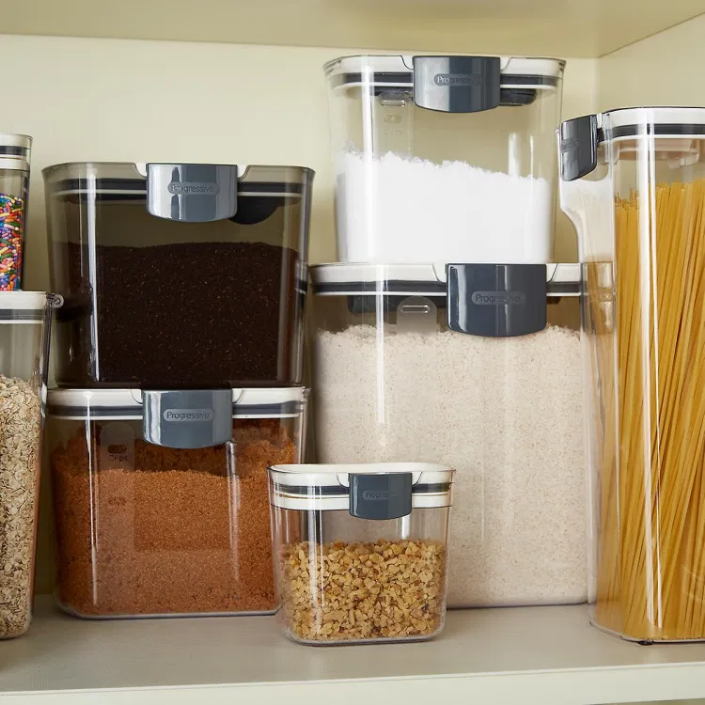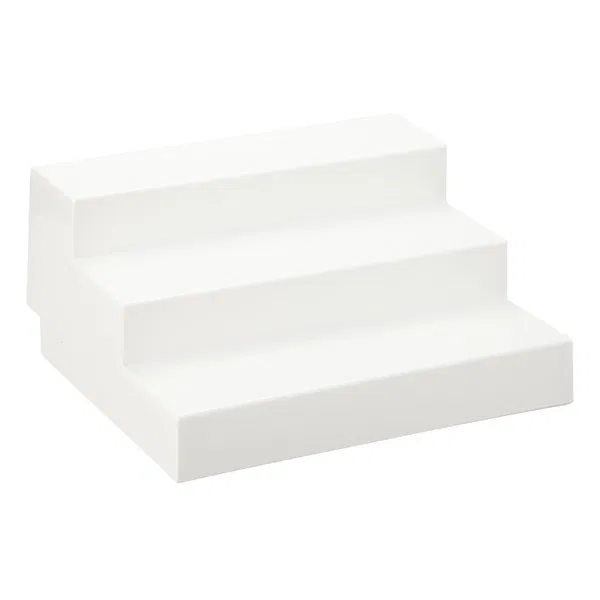Perfect Pantry Organization
Ok you guys, let's talk about the most popular place in your home, the pantry. It gets more attention than almost any other space, and thus is one of the most difficult spaces to organize and keep organized.
Maybe you have a great system and everything has a place and fits nicely and flows well, and then your children touch it. Your spouse touches it. Your friends, kid's friends, guests, or extended family, touch it. And it's all ruined.
Having other people getting into your pantry is pretty unavoidable, however there are ways to avoid complete chaos in the space. Here are some simple tips for creating an organized pantry and maintaining it (or at least making it super simple to get back in order after someone else touches it).
Categorize and Label
I know, I know. I am truly a broken record. But it helps, I swear. Categorize your shelves, or drawers, or cabinets, or whatever your "pantry" consists of, by the basics. Consider: Breakfast, Baking, Pasta, Sauces, Snacks, Sides, etc. If you're a parent of kids who pack school lunches, creating a space for the go-to items to pack can also speed up that tedious process.
Next, use a label maker, post-its, masking tape and pen, or cute little gift tag labels, whatever you prefer and feel works with you space, and label that bad boy. I try to be pretty vague with labels in a pantry. The pantry is always changing and so are the foods you buy. So try not to be overly specific, for example, say "snacks" instead of "popcorn", or "sweets" instead of "cookies".
Easy Access
Using containers or drawers helps provide easy access to items, especially smaller items, and prevents them from getting lost in the back of your space. I love using bins or baskets for snack foods, canned goods, and produce.
Consider getting something with a handle for easy use, especially if it's on a higher shelf. Clear containers are a favorite of mine so I can easily see what's inside without having to root through it too much.
Honestly, it doesn't matter what bin you use, you could use shoe boxes in all reality, but containing items together helps keep your space organized and helps you to know how much you have/need.
Drawers are also great for spaces with deep shelving, which makes it even more likely for items to get lost in the abyss. We have several of these drawers (which are actually for sweaters) from The Container Store, but even an old Tupperware container, the one with the warped lid that never fits right, can be perfect for such items.
Make Everything Visible
Yes, again, I will recommend a Lazy Susan because, for me, they just make sense. I think they are great for oils, sauces, canned goods, and the like. They make dark corners accessible, and make it easier to get to items without needing to move 15 other things. For higher shelves, they may it easy to reach everything, especially if you can’t see into the back of the space.
Tiered shelving is another great way to make everything visible. These are also great for canned goods, oils, and sauces. Both items don’t work in every space, however, with tiered shelving you want to make sure you can easily grab items even on the top tier. And with a Lazy Susan you want to ensure it has space on all sides to spin completely around, and that it’s easy to load and unload.
Allow for Flexibility
One of the most frustrating and difficult things about organizing a pantry is it is constantly changing. Unless you are some sort of robot and only buy the exact same things every time you go to the grocery, a pantry needs to be able to change from time to time.
For example, we used to have a drawer in our space specifically for baby food and formula. Then, the space transitioned into pouches and baby puffs. Now, we’re moving beyond that into “big boy” foods. However should another baby enter our world, we will need to create that space again.
To De-Box or Not
Emptying boxes and groceries into containers isn’t for everyone, but taking the extra time to do so can help save money by knowing what you have, which prevents over-purchasing. It also helps provide a clean look in your space.
Benefits to air-tight containers:
It keep items fresh
It allows me to easily see how much I have and what I need to replenish
It’s less of a mess/hassle (think of the cloud of flour that occurs when you use bagged flour)
It creates a clean, stress reducing look
Air tight containers are great for pasta, baking ingredients, cereals, nuts and candies. It keeps items fresh longer, and allows you to easily see what you have and what you need to replenish. I also love that it’s less mess and less hassle. Every time I’d open my flour bag, a cloud of flour would explode all over our kitchen counter. And then another cloud when I’d close the bag.
I personally love this collection from Progressive, I feel they thought of everything from dusting spoon for powdered sugar, to a terra cotta disk for brown sugar. The OXO Pop containers, and these acrylic ones from the Container Store are also great.
One huge downfall to containers, they really add up $$$ I highly recommend purchasing slowly and looking for deals. Home Goods and T.J. Maxx will often have the Progressive or OXO containers for about $3 cheaper, which doesn’t sound like much but if you’re looking to do your entire pantry it can make a huge difference. However, don’t just buy what you see on sale! Figure out exactly what sizes you need and only purchase those. It will save you money, stress, and time.
How to Organize Your Pantry
If you’re feeling like you need a complete overhaul in your space, follow these steps to create an organized and functional pantry for yourself.
Go to the grocery store. Begin with a stocked space so you know exactly how much room you’ll need.
Empty the contents of your pantry. I typically do 1-2 shelves at a time because I never know how much time I’ll have with kids and naps. It can also be helpful to start small with just a couple shelves to prevent you from feeling overwhelmed in the chaos. It will get worse before it gets better!
Categorize items. Put like items together such as (but not limited to), Breakfast, Pasta, Baking, Sauces, Snacks, Sides, etc.
Clean. Wipe your space clean and consider adding liners, it’s amazing how many crumbs can accumulate in a pantry!
Measure. Before purchasing any organizing supplies, measure your space. Measure how wide your space is, how deep the shelves are, and how much height you have between shelves. Then be sure to find pieces that will fit nicely. Don’t be afraid to bring a measuring tape to the store! I do it all the time.
Install storage helpers. Whether you’re adding baskets, drawers, Lazy Susan, or tiered shelving, install the items first to see how they fit and would function, before you add all of your food back to the space. Once you have a system you think should work, place everything in the space.
Label. Label what you feel you need to. I don’t label everything because the space needs to be able to change, but labeling can help the other people who go in your space to see exactly where everything is (provided they read).
My Go-To Pantry Items
Great for produce, small snacks, toddler/packed lunches foods, canned goods (store on side for max space).
Light weight and great for produce, snack foods, can be hooked into a small one for deep storage shelves.
Great for snack items or larger items.
This drawer comes with dividers as well, which can further help keep organized.
Grip Liner – Use for drawers so items don’t shift.
Love these for snack foods, candy, granola, and nuts, they’re inexpensive and super cute.
Perfect for pastas and dried foods, but measure before you buy and plan out what sizes you need.
Amazing for baking ingredients and super easy to use. They also make a great cereal dispenser.
Create double storage in extra tall shelves.
Adjustable tiered shelf, great for canned goods and sauces.
Love these for smaller items like snack bars, sauce packets, baking supplies.
Use for sauces, canned goods, use in hard to organize corners or high shelves.
For more awkward advice, live from Good Morning Connecticut, watch the following segment:
What's your biggest stress in the pantry? Are you someone who de-boxes?
Thanks for visiting!
